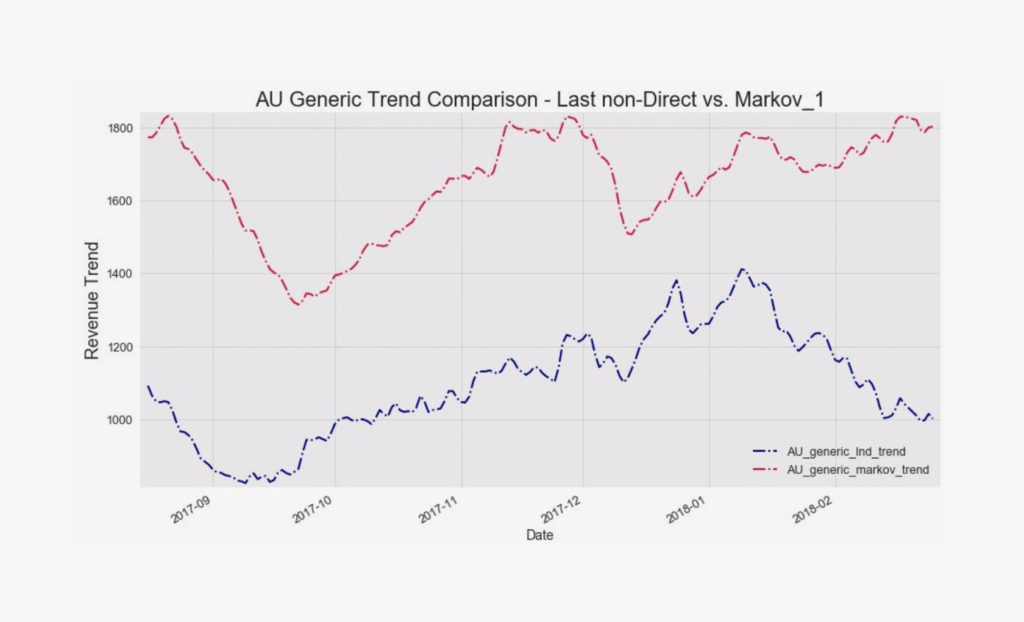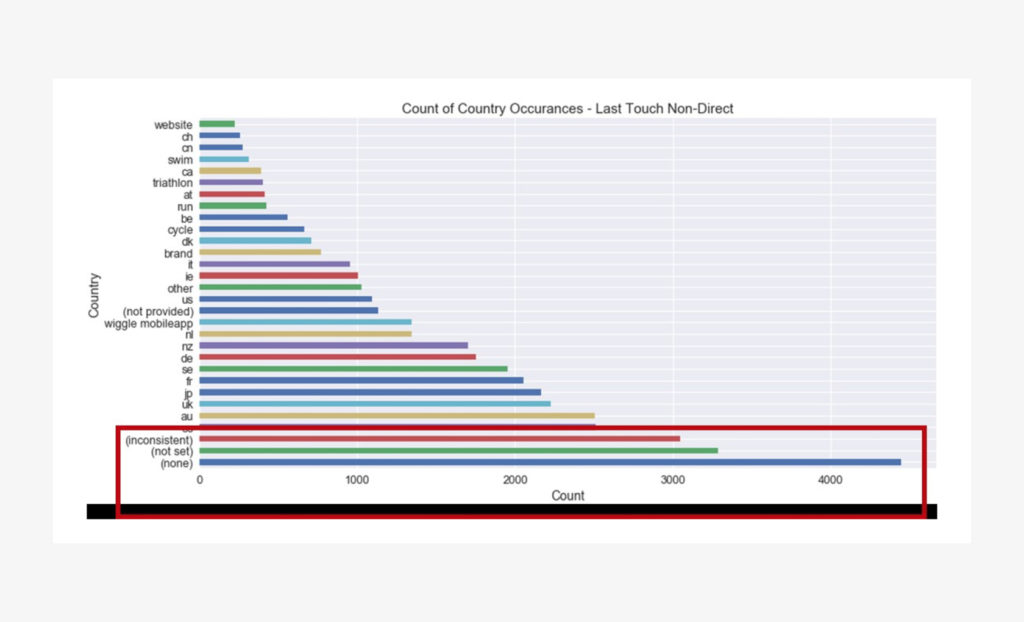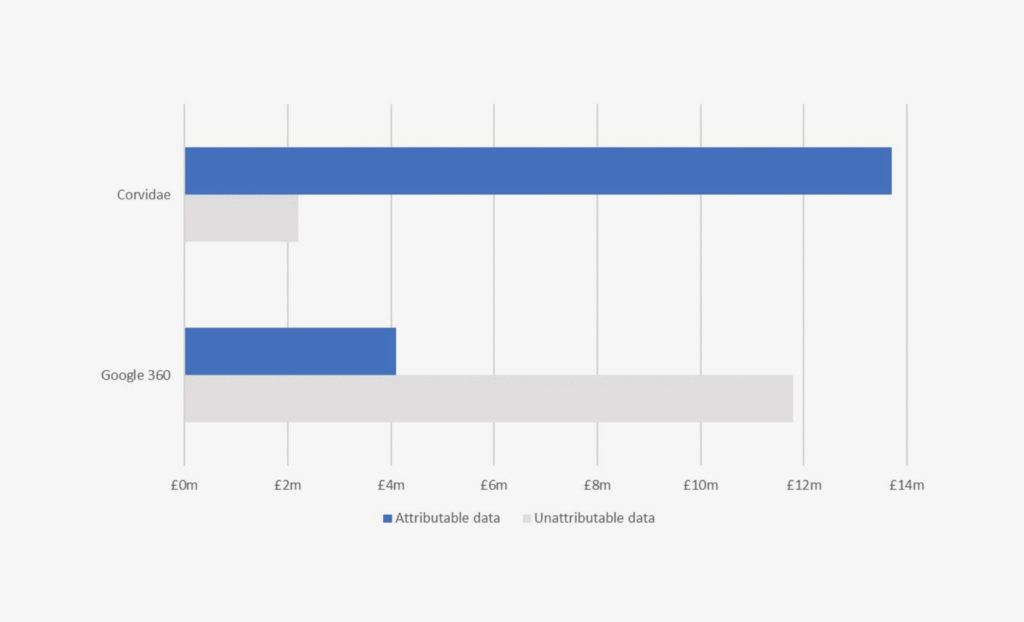Attribution models for international expansion

At QueryClick we have over a decade of experience working with multinational brands, supporting their digital marketing efforts in more than thirty markets worldwide. Over the last three years we have developed machine learning tools that allow us to unlock truly accurate attribution data, allowing us to further improve client performance in those markets.
It’s fair to say that some of the insights we have developed over those years have been truly eye opening. The following graph, for example, was developed on request for a target market with a budget that was too small for effective a/b test analysis.

The graph shows that in Australia, when looking at paid search (PPC) generic terms, the revenue trend being shown in Google Analytics is completely opposite to the real revenue direction since February of that month.
The Australian market was new for the brand in question, where they are largely unknown. In the UK and other key markets however, they are the dominant brand in their sector (a sub-sector of sport retail). The vast majority of their PPC activity is consumed by brand spend. As a result, their campaign structure is not suited to a highly granular, generic growth strategy.
Achieving growth in new markets therefore requires a complete overhaul of their current approach to deliver the growth opportunity represented by that market. Without accurate attribution, that insight would be completely invisible using currently available attribution tools.
Why is accurate attribution so hard?
The short answer is: because the data quality going in is typically very poor. Consider the below chart:

This shows that, for the same brand, there was as much data unavailable for attribution by Google Analytics as there is for their top three countries combined.
The same is also true for common deployments of Adobe Analytics.
Consider for a second what possibility you have to accurately track a customer through your data stack, when up to a quarter or more of your data is unavailable?
QueryClick has combined pioneering data science and machine-learning techniques to develop Corvidae. Corvidae’s random forest and Markov chain machine-learning mechanisms simulate billions of future outcomes based on your historic marketing data. It resolves your media mix to a perfect balance of growth and ROI instantly. Here is another way to visualise your ability to attribute correctly by closing that data ‘gap’:

This is a snapshot of a single day and represents ‘missing’ revenue of £9.7m per day, when trying to attribute accurately with Google Analytics.
So, when considering what attribution models can do for you in breaking new markets, it may be better to consider instead how you can get more of your existing data available to be analysed in an attribution model that allows you to asses accurately how your brand activity is driving value – or not – in your latest market rollout.
Own your marketing data & simplify your tech stack.
Have you read?
I have worked in SEO for 12+ years and I’ve seen the landscape shift a dozen times over. But the rollout of generative search engines (GSEs) feels like the biggest...
As you will have likely seen, last week Google released the March 2024 Core Algorithm Update. With it, comes a host of changes aiming to improve the quality of ranking...
After a year of seemingly constant Google core updates and the increasingly widespread usage of AI, the SEO landscape is changing more quickly than ever. With this rapid pace of...


